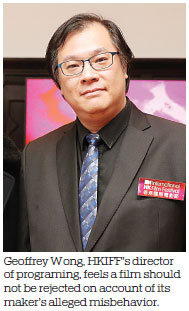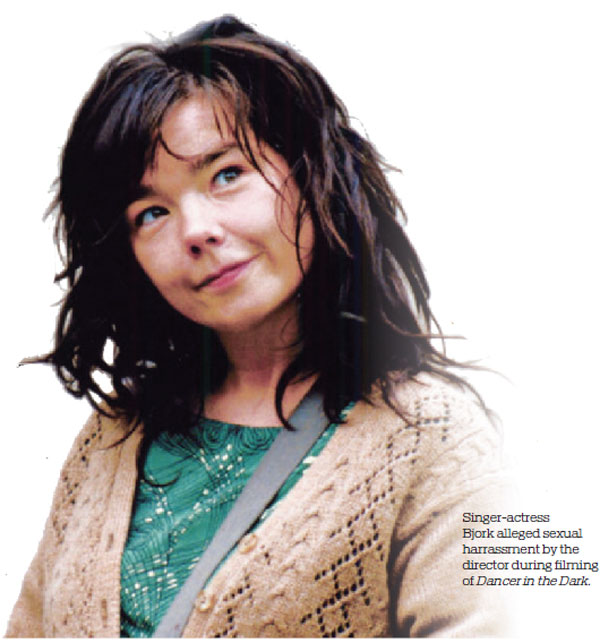Shoot the director, watch the film
Updated: 2019-07-05 06:07
By Rob Garratt(HK Edition)
|
|||||||||
I used to vehemently believe that we should never let what we knew about an artist affect our perception of the art. I felt convinced that romanticizing a work's creation or attributing a certain state or conviction to its author was intrinsically flawed. Art, I believed, should exist in a strictly value-based vacuum.
The shocking revelations of 2017's #MeToo movement shook me into a troubling reality. Cultural studies theories felt inadequate to explain away the revolting behavior of Harvey Weinstein et al. Suddenly it felt insulting and naive to put aesthetic ideals above basic human decency. After all, when it comes to moral transgressions, perhaps what we can't be sure of - given there would be at least two versions of the story - shouldn't be confused with reasonable doubt.
These feelings veered sharply into focus this month when I picked up the June-July schedule for Cine Fan, the year-round program of classic and critically-acclaimed cinema presented by Hong Kong International Film Festival Society (HKIFFS).
Lars von Trier's Dancer in the Dark features in a series commemorating the first death anniversary of celebrated cinematographer Robby Mller. The film's lead actress Bjork had alleged that the Danish director repeatedly sexually harassed her during the film's making.
A winner of Cannes' top prize, the Palme d'Or, Dancer in the Dark is a gripping musical melodrama with a brilliant original score written and voiced by Bjork. Under other circumstances, I would be thrilled to catch this film on the big screen, but after hearing Bjork's account I couldn't bring myself to book a ticket.
I asked friends and industry insiders how they felt about the film's inclusion in the Cine Fan list. "One should always be able to distinguish the artist from the person," argued Louis Aubonne, a French film enthusiast who works in films promotion for a Hong Kong-based cultural organization.
Aubonne believes that ultimately a divide exists between the institutionalized justice doled out by the legal system and the rather more fickle court of public opinion. "It's terrible nowadays that limited-in-time justice sentences equal to unlimited society sentences," he said, adding that such attention can, perversely, create a fame-prolonging "seal of infamy".
He invokes the case of Bertrand Cantat, the former frontman of rock band Noir Dsir who was convicted of killing his girlfriend ("murder with indirect intent") in 2003 but has enjoyed a wide success since his release from prison four years later.

"Now he is back, and so what?" says Aubonne. "He went to jail, he served his time - and while I understand the public outcry, I would definitely get a ticket to his show. "The same goes for Lars von Trier's Dancer in the Dark - a chef-d'uvre to my ears and eyes."
Others I spoke to found Cantat's media profile distasteful, even exploitative. But film is an inherently more collaborative medium than music, and even if one cannot forgive Von Trier, should we forget the contributions of others, not least Bjork herself?
Emphasizing its ongoing celebration of Mller, Hong Kong International Film Festival's director of programing Geoffrey Wong took a broader view.
"The HKIFFS supports the #MeToo movement. However, we also believe that the creation of any film is a collective effort, and that the audience should not be denied the opportunity to watch a film because one person who participated in its making has been convicted, let alone accused, of committing a crime," said Wong. "We think it would be unfortunate, and indeed unfair to Robby Mller and his co-contributors, if these films can never again see the light of day due to the alleged crimes committed by the director."

(HK Edition 07/05/2019 page8)